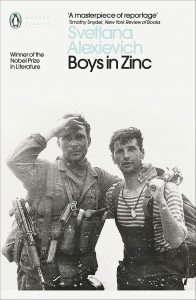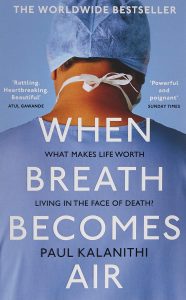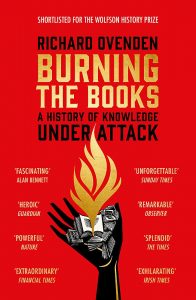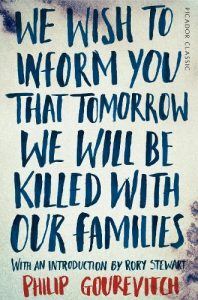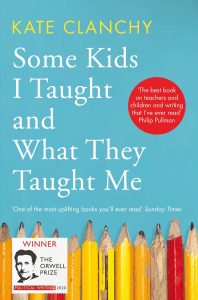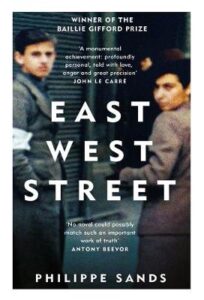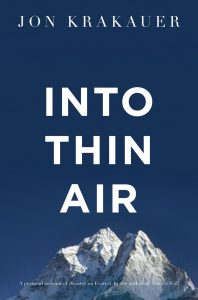
Welcome to the second installment in our feature running through the best 100 non-fiction books of modern times! (You can still read our first list here…)
A list like this is always going to be divisive and controversial. A few years ago, The Guardian ran a series on the 100 best non-fiction books of all time, which turned out to be a bit of damp squib. Inevitably, when embarking on a fool’s errand like running a “best of all time” list, works which are of historical importance tend to outweigh newer works, often at the expense of entertainment value. No one could really doubt that Marx’s Das Kapital is a more ‘important’ work than say, Bill Browder’s Red Notice, but we all know which one we’d be reaching for when in search of a thrilling read.
In this list, we’ve aimed to balance the new with the classics, the ‘important’ with the merely brilliant. But overall, we’ve simply put together a list of essential and incredibly entertaining non-fiction books. If you think we’ve left something out, let us know in the comments. Or just sit on it, our opinion is more important and refined than yours anyway.
In recent days we have seen first-hand just how futile attempts to impose a foreign nation’s will on Afghanistan can be. While the causes of the Soviet Union’s collapse are manifold, one of the key factors was how it bankrupted itself trying to maintain communist control over the Afghan people.
Often clumsily referred to as the USSR’s version of the Vietnam War, the 10-year Afghan campaign caused over 100,000 deaths and left both Russia and Afghan society irreperably damaged. While Soviet propaganda kept the people back home largely in the dark about the whole disasterous campaign, soldiers were shipped home in zinc coffins in ever increasing and obscene numbers.
Svetlana Alexievich’s incredible talent has been to capture the true essence of ordinary experience. Her interviews and accounts of the experiecne of Soviet soldiers in this collection are vivid, eye-opening, and utterly life changing. This is astounding journalism, an almost perfectly-crafted piece of history. Get your copy here.
Pinker’s brilliant work straddles the lines between linguistics, philosophy, psychology and neuroscience. In this ground-breaking work, he sets out to shed light on the nature vs nurture debate, and he does so in his usual stylish, witty and engaging way.
Recently many people have assumed that we are blank slates shaped by our environment. But this denies the heart of our being: human nature. Violence is not just a product of society; male and female minds are different; the genes we give our children shape them more than our parenting practices. To acknowledge our innate abilities, Pinker shows, is not to condone inequality, but to understand the very foundations of humanity.
This is essential reading for anyone interested in the psychological basis for who we really are as people and as a society in general. You can order your copy from LitVox today.
This small book will rattle you to your core and change your perspective on so many aspects of being alive. At the age of thirty-six, on the verge of completing a decade’s training as a neurosurgeon, Paul Kalanithi was diagnosed with inoperable lung cancer. One day he was a doctor treating the dying, the next he was a patient struggling to live.
When Breath Becomes Air chronicles Kalanithi’s transformation from a medical student asking what makes a virtuous and meaningful life into a neurosurgeon working in the core of human identity – the brain – and finally into a patient and a new father.What makes life worth living in the face of death? What do you do when when life is catastrophically interrupted? What does it mean to have a child as your own life fades away?
Paul Kalanithi died while working on this profoundly moving book, yet his words live on as a guide to us all. When Breath Becomes Air is a life-affirming reflection on facing our mortality and on the relationship between doctor and patient, from a gifted writer who became both.
Stalingrad was the most brutal battle in human history. In October 1942, a Panzer officer wrote ‘Stalingrad is no longer a town… Animals flee this hell; the hardest stones cannot bear it for long; only men endure’.
It was at Stalingrad that the onslaught of Hitler’s Wehrmacht was finally stopped, but not until some 2 million people had perished in the chaotic inferno. Desperate and brutal hand-to-hand fighting typified the later stages of the 5-month-long battle, and the level of human suffering is barely imaginable.
Military history at its worst can be dry, calculated and obsessed with tactical language. Beevor is that rarest of things; a historian who understands the humanity of his topic. This book redefined how military history is written and consumed. Moreover, it brings an order and understanding to a topic that is by its nature disorderly and incomprehinsible in its barbarity. This is quite simply the best military history book of modern times. You can order your copy from LitVox today.
This is the newest book on our best non-fiction books list, but it’s almost guaranteed to be read for decades to come. The wanton destruction of museums, libraries and cultural sites that we saw as ISIS swept through Syria and Iraq a few years ago shocked the entire world. But Ovenden shows here that this destructive impulse has always been there in the baser part of humanity.
Civilisation, he argues, is a constant battle between those who would nurture and preserve knowledge and those who would destroy it, whether for religious or political control.
An unforgettable 3,000-year-old journey – from Mesopotamian clay tablets trying to predict the future, to Tudor book-hunters and Nazi bonfires, and on into the dangers of our increasingly digital existence, Burning the Books shows how the preservation of knowledge is vital for the survival of civilization itself. Get your copy today from LitVox.
In 1994, the Rwandan government orchestrated a campaign of extermination, in which everyone in the Hutu majority was called upon to murder everyone in the Tutsi minority. Close to a million people were slaughtered in a hundred days, and the rest of the world did nothing to stop it. A year later, Philip Gourevitch went to Rwanda to investigate the most unambiguous genocide since Hitler’s war against the Jews.
Hailed by the Guardian as one of the hundred greatest nonfiction books of all time, We Wish To Inform You That Tomorrow We Will Be Killed With Our Families is a first-hand account one of the defining outrages of modern history, an unforgettable anatomy of Rwanda’s decimation. As riveting as it is moving, it is a profound reckoning with humanity’s betrayal and its perseverance.
You can buy your copy of this chilling and stunning piece of journalism from LitVox now.
The education system in Britain has been one of the most contentious issues facing society since Richard Crossland decided to break up the Grammar schools in mid 1960s. Many bemoan the decline in standards in thousands of the new “comprehensive”schools, the teachers forced to spend most of the days as disciplinarians, the swelling class-sizes, the lack of selection.
The overarching theme of Clanchy’s brilliant book is that the main thing needed to improve education across the world is quite simple; good teachers. Good teachers must know their subjects and their role, but far more imporantly, they must know their students, listen to them, learn from them.
This clever, heartfelt and entertaining book is the best title to be published about the state of education in Britain, and deservedly won the prestigious Orwell Prize for Political Writing in 2020. You can buy your copy from LitVox.
This is a visceral, beautiful, slightly bizarre book, one that tackles the themes of grief and lonlieness in a masterful way.
As a child, Helen Macdonald was determined to become a falconer, learning the arcane terminology and reading all the classic books. Years later, when her father died and she was struck deeply by grief, she became obsessed with the idea of training her own goshawk. She bought Mabel for £800 on a Scottish quayside and took her home to Cambridge, ready to embark on the long, strange business of trying to train this wildest of animals.
H is for Hawk is an unflinchingly honest account of Macdonald’s struggle with grief during the difficult process of the hawk’s taming and her own untaming. This is a book about memory, nature and nation, and how it might be possible to reconcile death with life and love. Get your copy here.
This book is astonishing, easily one of the best non-fiction books of the last 50 years. It charts the birth of international human rights law in the aftermath of the Second World War. Interwoven with this narrative is Sands’ own personal quest to unveil the dark, unknown episodes of his own family’s war-time years.
In doing so, he uncovers an astonishing series of coincidences that lead him halfway across the world, to the origins of international law at the Nuremberg trial. Interweaving the stories of the two Nuremberg prosecutors who invented the crimes of genocide and crimes against humanity, the Nazi governor responsible for the murder of thousands in and around Lviv, and incredible acts of wartime bravery and savagery.
Real, palpable history writing with a beating human heart resounding throughout the narrative. You can order your copy of East West Street from the LitVox bookshop.
81. Into Thin Air: A Personal Account of the Everest Disaster by Jon Krakauer
This is the true story of a 24-hour period on Everest, when members of three separate expeditions were caught in a storm and faced a battle against hurricane-force winds, exposure, and the effects of altitude, which ended in the worst single-season death toll in the peak’s history.
In March 1996, Outside magazine sent veteran journalist and seasoned climber Jon Krakauer on an expedition led by celebrated Everest guide Rob Hall. Despite the expertise of Hall and the other leaders, by the end of summit day, eight people were dead. Krakauer’s book is at once the story of the ill-fated adventure and an analysis of the factors leading up to its tragic end. Written within months of the events it chronicles, Into Thin Air clearly evokes the majestic Everest landscape. As the journey up the mountain progresses, Krakauer puts it in context by recalling the triumphs and perils of other Everest trips throughout history.
The author’s own anguish over what happened on the mountain is palpable as he leads readers to ponder timeless questions. Thrilling and heartbreaking.
If you enjoyed reading through the second installment in the best non-fiction books of modern times, check back soon! The third part with be published very soon. You can check out our first list of numbers 100-91 by clicking here.
Are you a non-fiction nut? Why not check out the LitVox Non-Fiction Books subscription?
Every month, LitVox will select from the best non-fiction books in our range and send them right to your door! It’s cheap, it’s easy to sign up and it makes the perfect gift for the reader in your life (or yourself!)
